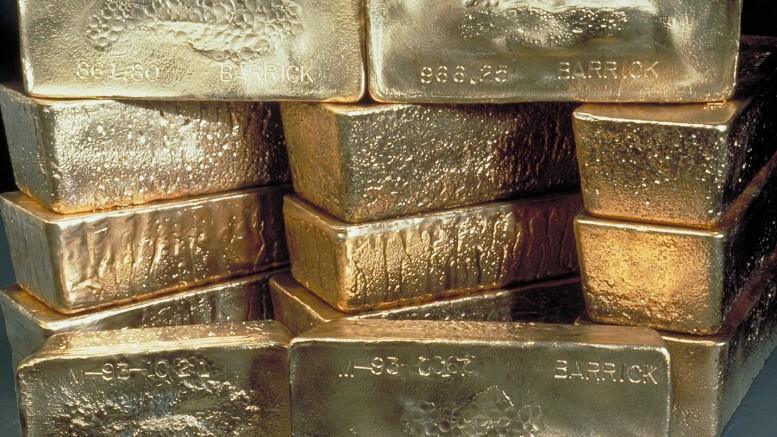Gold smashed yet another nominal price record on Nov. 3, as the Reserve Bank of India emerged as the surprise buyer of 200 tonnes of gold worth US$6.7 billion from the International Monetary Fund.
The 200-tonne figure translates to 6.43 million oz. gold, or about 8% of annual global mine production, and represents half of the 403.3-tonne amount the IMF signalled early in 2009 that it planned to sell.
The IMF’s gold hoard stood at 3,217 tonnes at the end of 2007, which ranked it third in the world behind the U.S. (8,314 tonnes) and Germany (3,417 tonnes), and ahead of France (2,603 tonnes) and Italy (2,452 tonnes).
Many gold watchers had expected China’s reserve bank to buy the first 200 tonnes, as that country’s foreign-exchange reserves are overweight in depreciating U.S. dollars and underweight in gold compared to most other countries.
So India’s IMF gold purchase electrified the spot gold market on Nov. 3, driving prices up almost US$25 to a record US$1,089.10 per oz. before closing the day at US$1,084.30. This broke last month’s all-time record nominal high of US$1,070.40 per oz.
The IMF said the 200 tonnes was sold at an average US$1,045 per oz., and paid for with cash and not IMF special drawing rights.
The process involved daily sales that were phased over the Oct. 19-30 period, with each daily sale conducted at a price based on that day’s market prices.
The IMF has repeatedly emphasized that it wants to carry out its sales without disrupting the gold market, modelling its efforts on the Central Bank Gold Agreements.
The IMF will use gold-sales profits to create an endowment that is a central component of a new income model that the IMF’s board endorsed in April 2008.
The IMF’s managing director, Dominique Strauss-Kahn, stated that the latest transaction is an “important step toward achieving the objectives of the IMF’s limited gold sales program, which are to help put the Fund’s finances on a sound long-term footing and enable us to step up much-needed concessional lending to the poorest countries.”
For its part, with the 200-tonne gold purchase, the Reserve Bank of India will be lifting the gold holdings in its forex reserves from near 4% to about 6%.
The reserve bank gave only a short, prosaic public statement that its purchase “was done as part of (its) foreign-exchange reserves management operations.”
On Oct. 23, India’s forex reserves amounted to US$285.5 billion, with gold making up US$10 billion of that. While that’s not much gold for a major country, it’s still about four times China’s official gold holdings.


Be the first to comment on "Gold prices set new highs as India buys IMF gold"